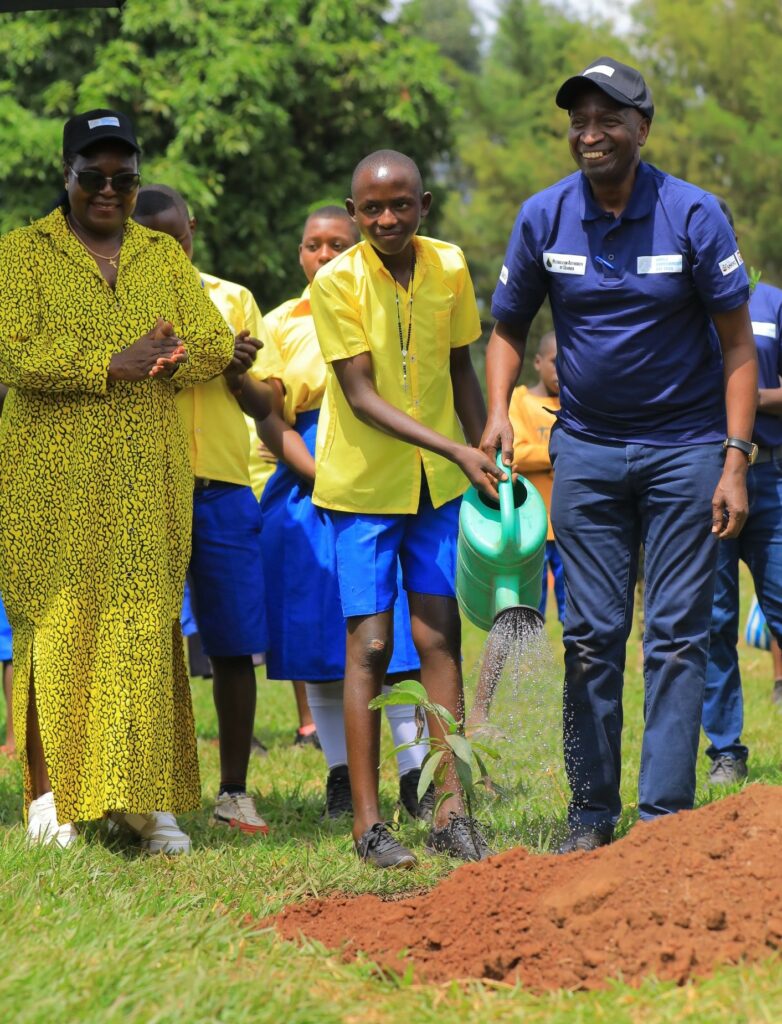Activists have previously pressured the Ugandan government and oil companies to halt oil mining in Uganda’s Albertine Graben, citing potential damage to the fragile ecosystem.
But, officials in Kampala and technocrats assert that Uganda’s projects employ advanced technologies that minimise noise, include biodiversity net gain programmes, monitor wildlife movement in national parks, and adhere to all required environmental and social mitigation measures.
These points were highlighted during the second World Environmental Day celebrations for the oil and gas sector, held at St. Genesius-Mpasaana Catholic Parish, Kakumiro district, on June 14.
Ernest Rubondo, Executive Director of the Petroleum Authority of Uganda (PAU), emphasised the importance of dispelling misconceptions about oil development’s environmental impact both locally and internationally.
Rubondo urged residents to confidently communicate that oil and gas extraction activities in Uganda do not harm the environment, contrary to claims by environmental activists.
This affirmation comes amid global shifts away from fossil fuels to renewable energy to combat climate change, emphasising clean air, water, and environmental stability.
The production of oil and gas is known to emit air pollutants linked to global warming and health issues such as cancer.
The ongoing global commitment, as underscored by the UN Climate Conference (COP28), stresses transitioning away from fossil fuels to mitigate climate collapse.
Critics, including Myrto Tilianaki and Hellen Huang in an article on Al Jazeera, argue against expanding projects like the East Africa Crude Oil Pipeline (EACOP), citing increased greenhouse gas emissions and adverse impacts on local communities and ecosystems, particularly in sensitive areas like Murchison Falls National Park and the Murchison Falls-Albert Delta Ramsar site.
Civil society groups in Uganda and Tanzania oppose the pipeline’s construction, citing environmental and social risks.
They advocate for enhancing Uganda’s renewable energy resources, such as solar and hydropower, for sustainable economic development and energy security without exacerbating climate change.
Despite these concerns, Ugandan authorities have faced criticism for their treatment of environmental defenders and activists opposing the pipeline, including harassment and arbitrary arrests.
Rubondo defended Uganda’s oil production methods, asserting that the sector operates sustainably with minimal environmental impact.
He highlighted Uganda’s low carbon emission rate of 13.3 kilogrammes per barrel compared to the global average of 33 kilogrammes per barrel, attributing this achievement to Uganda’s leadership and technical expertise.
The celebrations, organised by PAU and licensed oil firms including China National Offshore Oil Corporation (CNOOC) Uganda Limited, TotalEnergies, and Uganda National Oil Company (UNOC), featured a tree-planting initiative. UNOC emphasised the role of trees in capturing carbon dioxide, underscoring their commitment to environmental stewardship.
Minister of Energy and Mineral Development, Ruth Nankabirwa, acknowledged the importance of energy for development and stressed Uganda’s commitment to addressing greenhouse gas emissions through initiatives like the climate resilience programme and extensive tree-planting efforts.
She said 40 million trees will be planted with 2,500 already planted at Uganda Petroleum Institute and plans for 4,000 more at the Kabaale Industrial Park in Hoima, adding that oil is here to stay but should be mined while ensuring environmental sustainability.
“It is important to recognise that energy is crucial for development. While countries like Germany, USA and UK continue to consume significant fossil energy, Uganda’s petroleum projects remain viable and essential to our growth, to create a lasting value to the economy through supply of goods and services, employment opportunities and revenue,” she added.
Paul Mulindwa, Executive Director for Kitara Civil Society Organisation Network, emphasised the need for concrete actions and community engagement from both the government and developers to ensure environmental commitments are met.
“We need greater involvement, education, and engagement of communities by both the government and developers actively working in the field. Our commitment to planting trees and protecting forests, such as Bugoma, must translate into meaningful actions to safeguard our tree cover,” he added.



